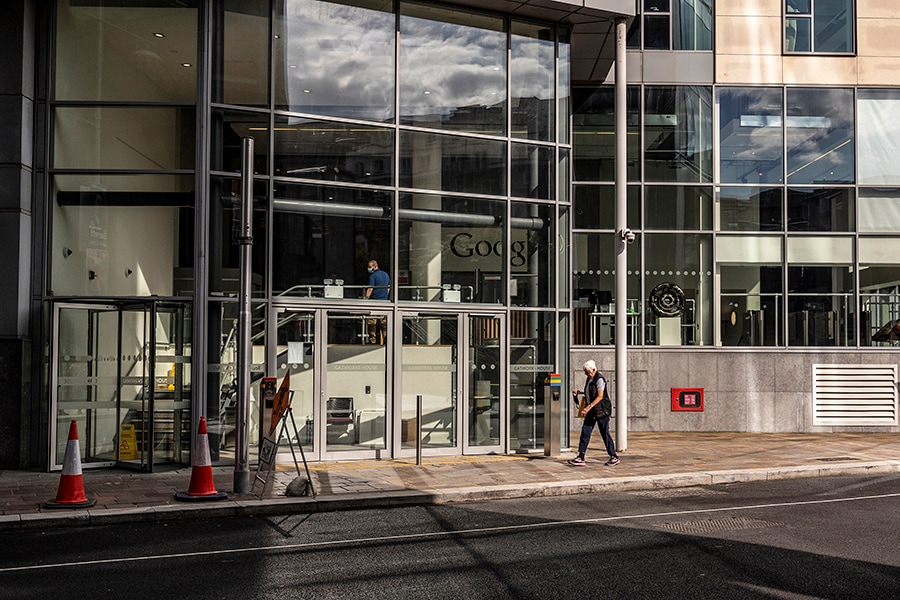
A global deal aimed at ending tax havens gains momentum
The framework includes a global minimum tax of 15% that each country would adopt, and new rules that would force technology giants like Amazon and Facebook and other big global businesses to pay taxes in countries where their goods or services are sold, even if they have no physical presence there
 Google’s European headquarters in Dublin on July 5, 2021. The most sweeping overhaul of the international tax system in a century is poised to take a significant step forward this week, with nearly 140 countries, including Ireland, expected to settle on a 15 percent global minimum tax rate.
Google’s European headquarters in Dublin on July 5, 2021. The most sweeping overhaul of the international tax system in a century is poised to take a significant step forward this week, with nearly 140 countries, including Ireland, expected to settle on a 15 percent global minimum tax rate.
Image: Paulo Nunes dos Santos/The New York Times
WASHINGTON — The most sweeping overhaul of the international tax system in a century is poised to take a significant step forward this week, with nearly 140 countries, including Ireland and Estonia, expected to settle on a 15% global minimum tax rate.
Negotiators were on the brink of agreeing to the rate Thursday, before a Friday meeting at the Organization for Economic Cooperation and Development, which has been coordinating the global tax talks. The tax rate has been the subject of months of intense negotiations. If enacted, it could help end a decadeslong race to the bottom on corporate taxation that has allowed tax havens to flourish and has drained countries of revenue.
Governments have for years been discussing such a tax overhaul; the negotiations gained momentum this year under the Biden administration, which is also pursuing changes to its domestic corporate tax rate. The framework under consideration includes a global minimum tax of 15% that each country would adopt, and new rules that would force technology giants like Amazon and Facebook and other big global businesses to pay taxes in countries where their goods or services are sold, even if they have no physical presence there.
Before Friday’s meeting, negotiators have been grappling over the language of a joint statement describing the tax rate, exceptions for certain kinds of companies and the implementation period, which some nations want to be drawn out for years. European holdouts such as Ireland, Hungary and Estonia have been under intense pressure in recent months to join the agreement, which will require the approval of the 27 European Union countries.
After weeks of heated negotiations and pressure from the United States and France, Ireland, a main holdout to the deal, said it was ready to accept a 15% minimum tax rate after Prime Minister Michael Martin told the Irish Cabinet on Thursday that the rate would only apply to multinational giants like Facebook and Apple but not to Irish companies operating in Ireland.
©2019 New York Times News Service




